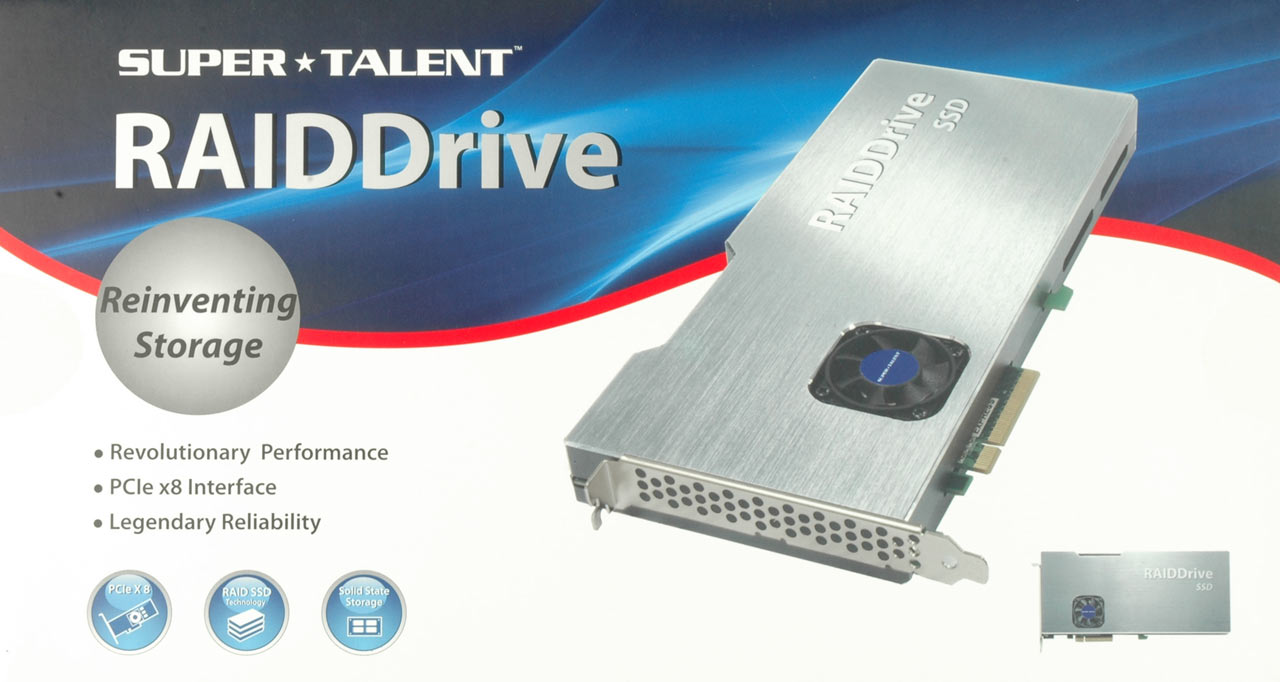Super Talent's 512GB RAIDDrive: RAID On An Add-In Card
RAIDDrive Is A Quad SSD Monster
The concept is as simple as it is conclusive: if the current generation of flash SSD drives can’t deliver more than 200 to 250 MB/s, let’s just take several of them and create something faster. Super Talent’s RAID drive is nothing more than a high performance RAID controller with four on-board flash SSDs. We received a model that runs in a RAID 0 configuration, based on four 128GB SSDs, and the result is quite impressive.
SATA/600 Coming
Most flash-based SSDs aren’t really bottlenecked much in terms of throughput yet, but SATA at 6 Gb/s (up to 600 MB/s utilizable) is available, representing the next logical step up in potential interface performance. Next-generation SSDs will certainly be capable of delivering higher throughput. Do we need this? Absolutely. Fast flash-based storage products have a noticeable impact on system performance. It can be hard to quantify this because we’re not talking about conventional benchmarking, but whenever you launch Windows or applications or put the system into hibernation (or back), you will be thankful for having a fast storage device.
Prices Drop, But Remain High
You can get fast flash SSDs for under $300. This still has to be considered an enthusiast price tag, because hardly any average user (including me) would be willing to spend that much money on a 128GB drive. A terabyte (1TB) hard drive costs less than one-third of this. Still, popular offerings, such as Intel’s X25-M, Kingston’s SSDNow, and fast Vertex SSDs by OCZ can be purchased at increasingly affordable levels, especially if you’re willing to dip under the 100GB capacity mark. The only recommendation we’d offer is to go for capacities allowing you to keep roughly 30% of the drive unused.
Super Talent: Brute Force SSD RAID
With the RAIDDrive, Super Talent anticipates next-generation flash SSD products, which will likely use even more than today’s eight to ten memory channels in an effort to accelerate performance. Putting four SSDs into a RAID 0 array essentially expands this multi-channel architecture. With that said, let’s look at Super Talent’s MLC-based 512GB RAIDDrive, the RGS0512M.
Get Tom's Hardware's best news and in-depth reviews, straight to your inbox.
Current page: RAIDDrive Is A Quad SSD Monster
Next Page Many Flavors Of Super Talent’s RAIDDrive